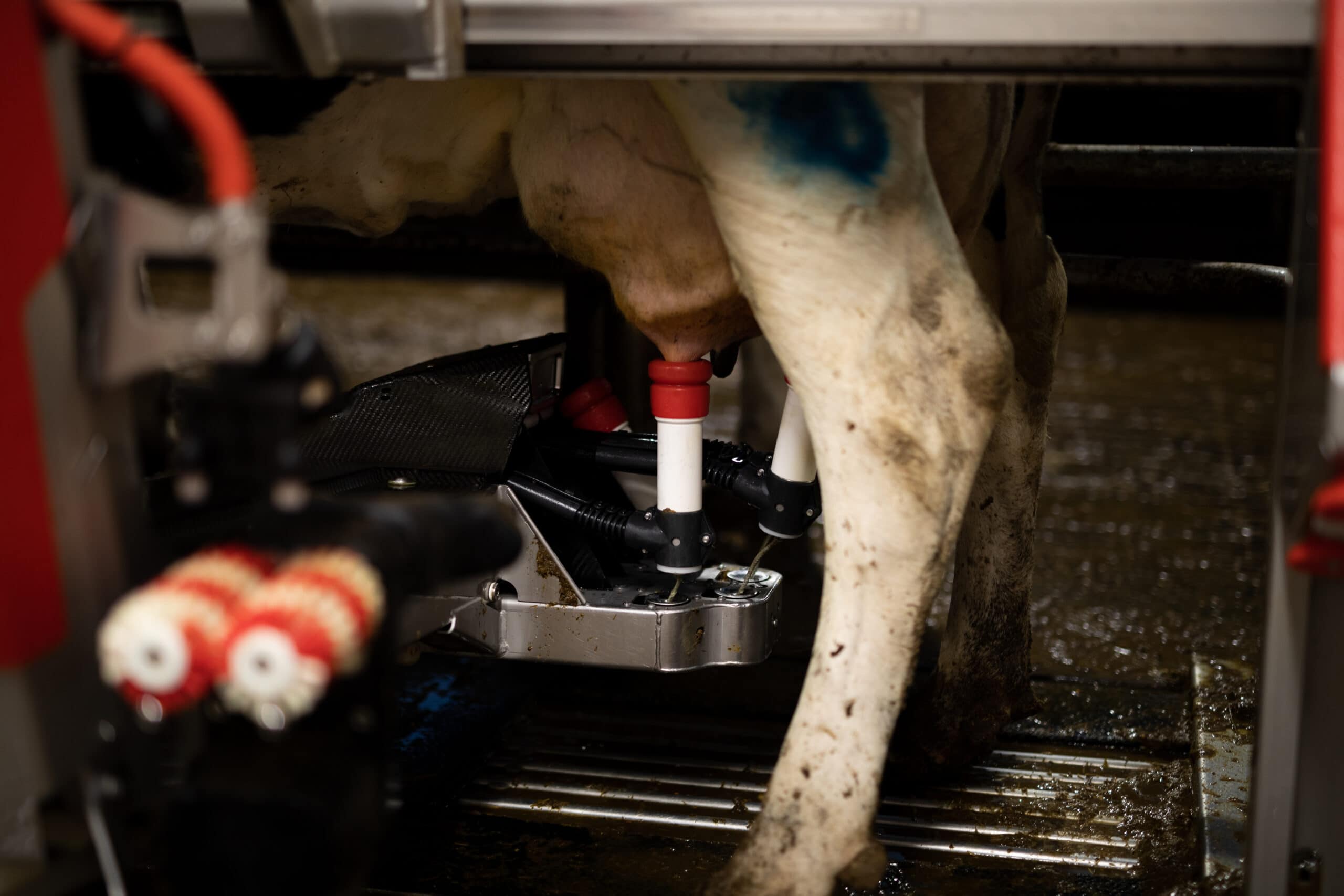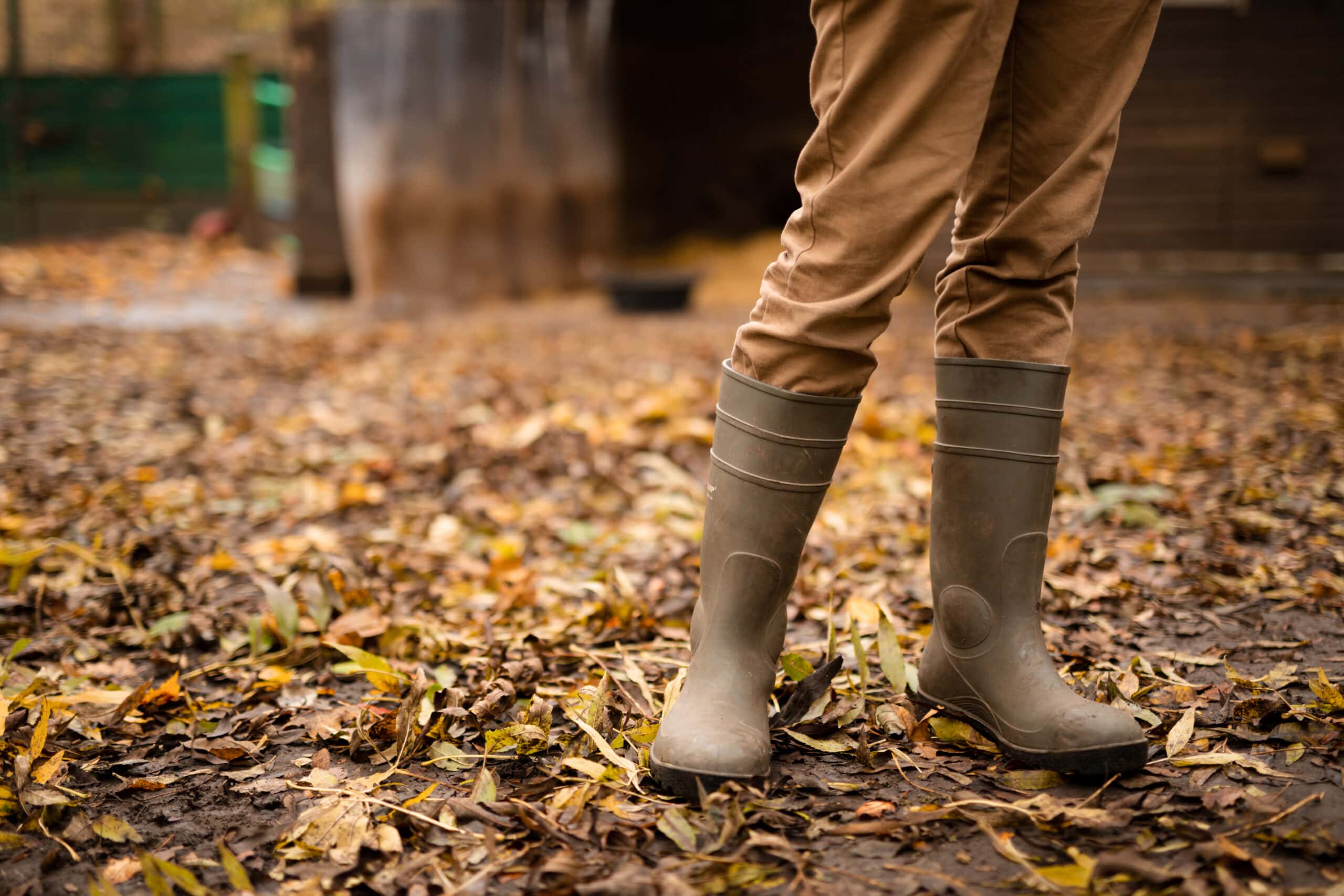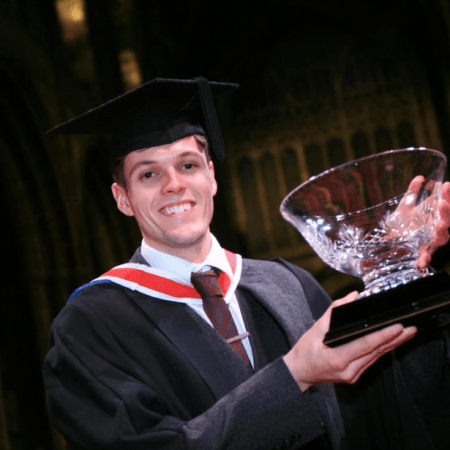In today’s global marketplace ambitious managers are needed, who will lead their business successfully through the challenges and seize any opportunities that arise in the agricultural sector.
This one year course is suitable for students with a relevant foundation degree in agriculture, including those from other education institutions.
This course takes an interdisciplinary approach, allowing for advances in science and technology of both crop and livestock industries to be explored on a national and international scale whilst maintaining the flexibility for you to develop your interest and research in individual sectors with the complexities of the wider industry in mind.


Progression to the BSc (Hons) programme will enable you to amplify the academic and interpersonal skills acquired on your foundation degree, whilst also developing new critical thinking skills required of agricultural graduates.
You will evaluate key advances in agricultural sciences and technologies and analyse their contribution towards sustainable development, such as improved food security and integrity, whilst reducing the environmental impact of the food-chain. You will also consider the role of strategic management and leadership on developing economic and social viability in agri-businesses and communities.


You will gain a high level technical and scientific knowledge relevant to our forward thinking agricultural industry, while also being introduced to innovative business management techniques that could be implemented to benefit your business.
The course is broken down into 4x 20 credit modules (including a 40 credit dissertation module at Level 6), which are completed over 1 year.
*Denotes optional module
†Dissertation is a double-weighted module, worth 40 credits
All modules will run unless changes are made to the course as a whole.
Your overall workload consists of class contact hours, independent learning and assessment activity, plus field trips. Your dissertation contact hours will primarily consist of 1:1 meetings with your supervisor.
Year 1: 15% of your time is spent in timetabled teaching and learning activity
Teaching, Learning and Assessment: 162 hours
Independent Study: 1038 hours
Assessment Methods
Assessments are designed to encourage both academic and workplace skill development. They include a combination of coursework and timed assessments in both independent and collaborative formats. Coursework may take many forms including essays, reports, data processing, presentations, academic posters, seminar discussions, interviews, critical reviews and portfolios of evidence. Timed assessments will vary depending upon the nature of the module but will be problem-solving tasks dealing with real-life industry issues which support the development of industry and life skills.
Feedback
Feedback is supplied via Turnitin or directly from the module tutor. The majority of submissions are made via Turnitin and feedback for coursework is provided within twenty working days after the submission date.
Written feedback will be supported verbally should the student require clarification. Formative assessment feedback will be provided at the time of completion where possible, with more detailed summative feedback for reports.
A range in specialist knowledge and experience allow us to offer a significant number of secondary qualifications to all students at reduced costs. These include:
Students will be able to access course timetables for the academic year in September.
Timetables are subject to change, but most students can expect to spend 3-3.5 days per week on campus.
During this course, no formal modules require an industry placement. However, students will still be required to apply and practice the skills acquired in theory sessions in their independent research project (as part of their dissertation) and are welcome to undertake paid or voluntary work as required.
Tuition Fees
As a student at UCR, you will have two main costs to meet; your tuition fees and living costs.
Our full-time tuition fees for UK and EU students, entering University, can be found on our student finance page. These fees are charged for each academic year of a course and are set by the college annually.
Tuition fees for international students can also be found on our student finance page.
Additional Costs
All resources will be available through the college library or VLE as E-Books, therefore there is no formal requirement to purchase textbooks. Although a list of recommended texts can be provided. We promote the use of online journals, webinars and podcasts.
Some shows and field trips may have small admission fees (usually £10-20). There may also be opportunity to attend industry events and conferences, the costs of which vary depending on event, but of course are optional.
Students may also get the opportunity to join a UK or international study tour, which usually cost £150-£1,500 depending on location and duration.
Equipment Costs
Students are responsible for everyday stationary, access to a laptop and PPE (steel-toe wellies, overalls and warm clothes) for external visits. For biosecurity purposes, all PPE for the campus farm will be provided.
Warm clothing and waterproofs are important for an external visit.
Prices of equipment are subject to change dependent on retailer.
Apply directly through UCAS
Relevant Foundation Degree
September 2022
September 2023
Full-time: 1 year
Connor Smith | BSc Agricultural Business Management
“Doing my degree felt essential because the dairy industry requires innovative, forward thinking individuals with academic minds who can push the industry forward.”

Here you will find useful information about the services and support available at University Centre Reaseheath. Click to expand each item:
University Centre Reaseheath is committed to providing additional financial support to those who need it. To find out about the bursary schemes available visit the additional financial support pages.
For students to get the best out of their time at University Centre Reaseheath, we must both recognise that we owe obligations to each other. These obligations are set out in our UCR Student Contract. Before you accept an offer of a place at University Centre Reaseheath, it is important that you read these contract conditions. If you are going to be living in Halls of Residence, you will also need to read the Student Accommodation Licence Conditions. Both of these contracts can be found here.
Click here to view the University Centre Reaseheath Student Protection Plan.
All UCR students are given the opportunity to apply for residential accommodation. First year students are guaranteed accommodation and this offer is made to all applicants who live more than a reasonable daily travelling distance from Reaseheath (providing you have applied before the UCAS equal considerations deadline. For full details on our halls of residence visit our accommodation page.
We have a team of dedicated professionals on hand to offer you support. These include our Student Services Team, Inclusive Learning Team, Library and Learning Resources Team and the Reaseheath Careers Service. You can find more information on the support provided at Reaseheath on our support page.
University Centre Reaseheath is proud to welcome international students. For more information, please visit our international students page.